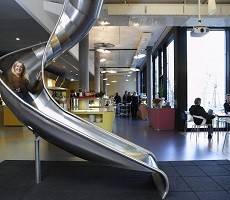June 1, 2016
Coworking continuing to drive workplace change around the world 0
 Coworking continues to be one of the main drivers of workplace change globally and is now becoming mainstream, according to new research from serviced office provider The Instant Group. According to the firm’s Flexible Workspace Review – US 2016 report, coworking grew more than 10 percent across the US over the last year and ‘combination centres’ which offer both executive suites and coworking spaces expanded by 12.9 percent as existing operators sought to take advantage of the growing demand for collaborative and agile workspace. The study claims that the occupation of flexible workspace by corporations has significantly expanded the US flexible office market over the past year, largely driven by the rise of the contingent workforce and changing workplace demands of Millennials. The total market grew by 4.3 percent and now includes 3,596 centres, the largest markets of its kind in the world with the UK following at 3,290 centres.
Coworking continues to be one of the main drivers of workplace change globally and is now becoming mainstream, according to new research from serviced office provider The Instant Group. According to the firm’s Flexible Workspace Review – US 2016 report, coworking grew more than 10 percent across the US over the last year and ‘combination centres’ which offer both executive suites and coworking spaces expanded by 12.9 percent as existing operators sought to take advantage of the growing demand for collaborative and agile workspace. The study claims that the occupation of flexible workspace by corporations has significantly expanded the US flexible office market over the past year, largely driven by the rise of the contingent workforce and changing workplace demands of Millennials. The total market grew by 4.3 percent and now includes 3,596 centres, the largest markets of its kind in the world with the UK following at 3,290 centres.

































May 25, 2016
An out of hours email ban and why we all need the ‘right to disconnect’ 0
by Adrian Lewis • Comment, Flexible working, Legal news, Work&Place, Workplace
(more…)